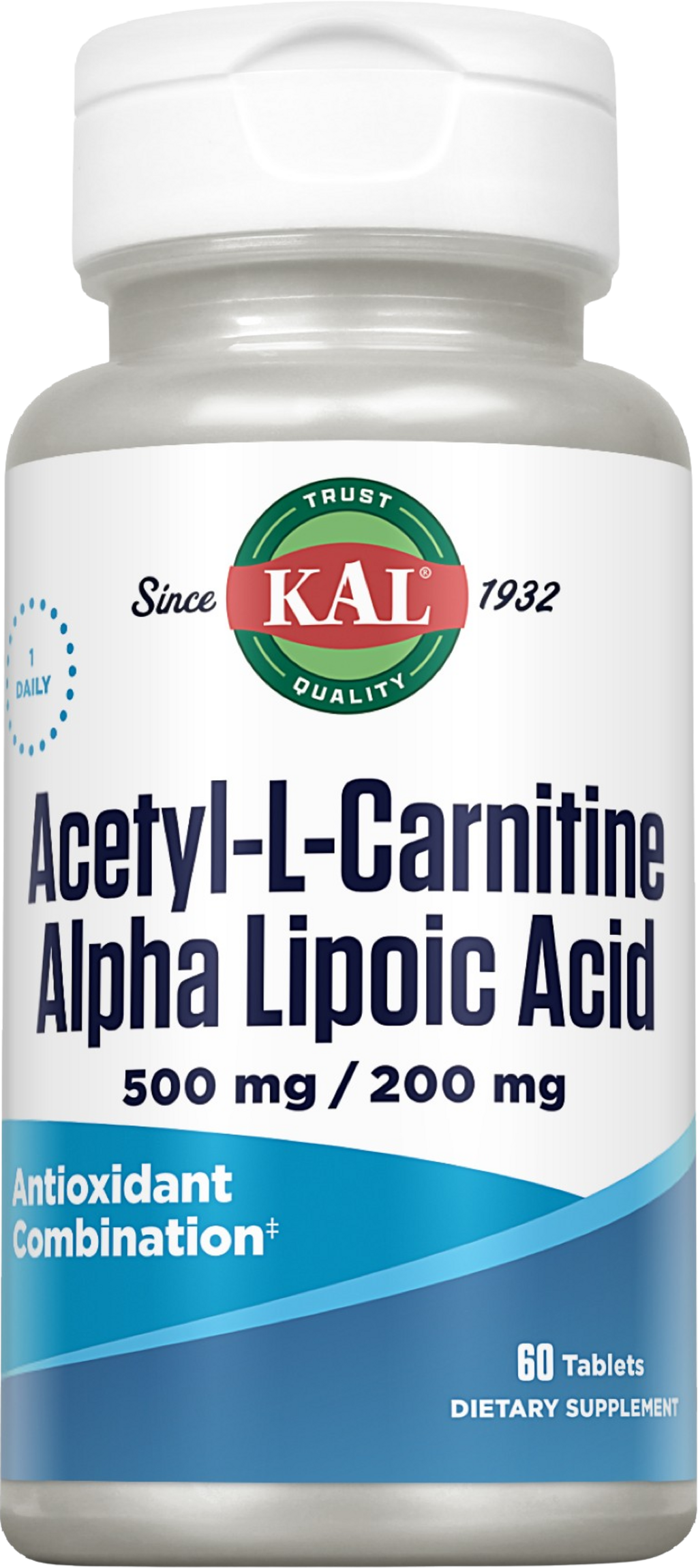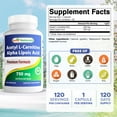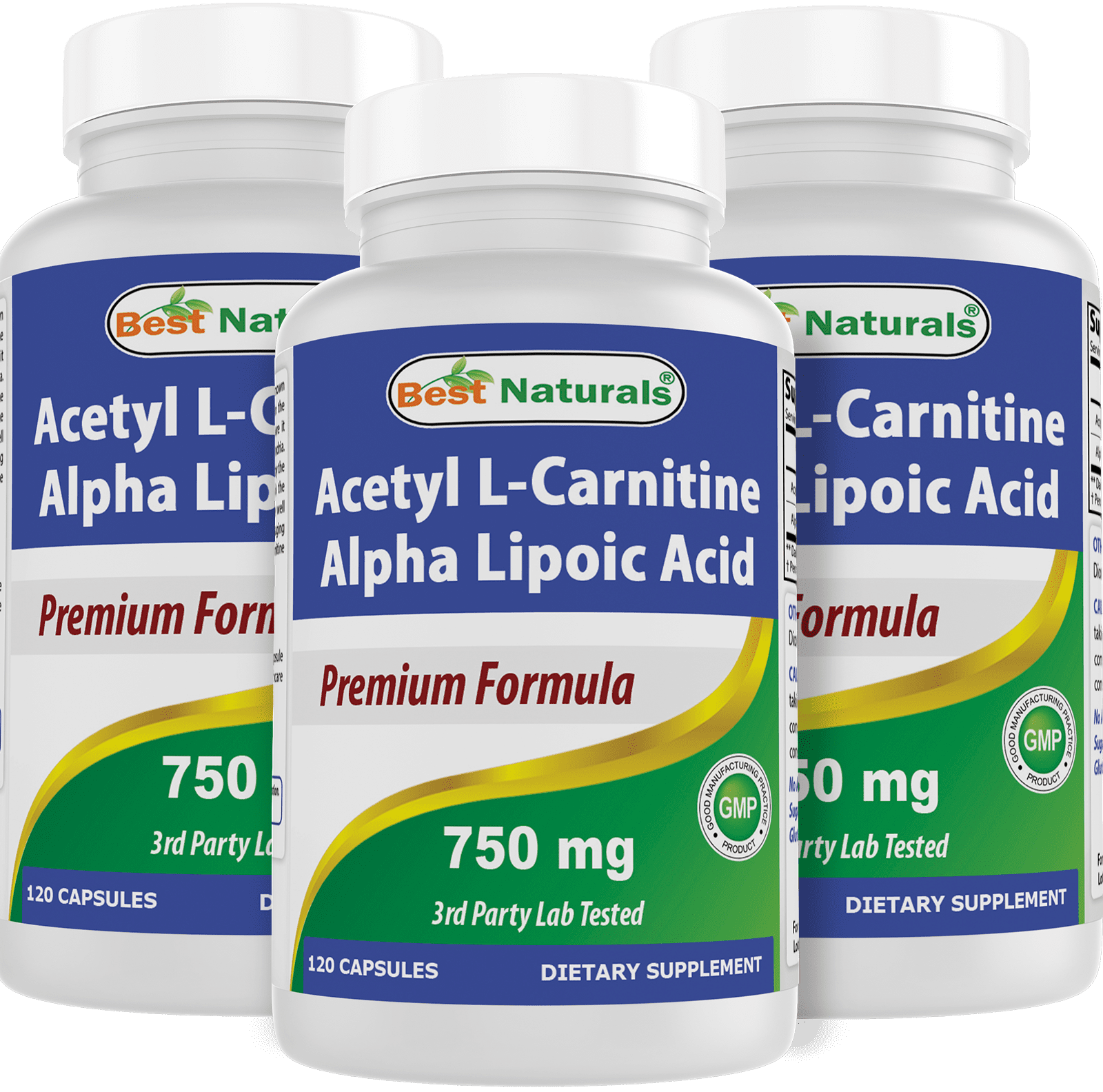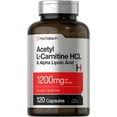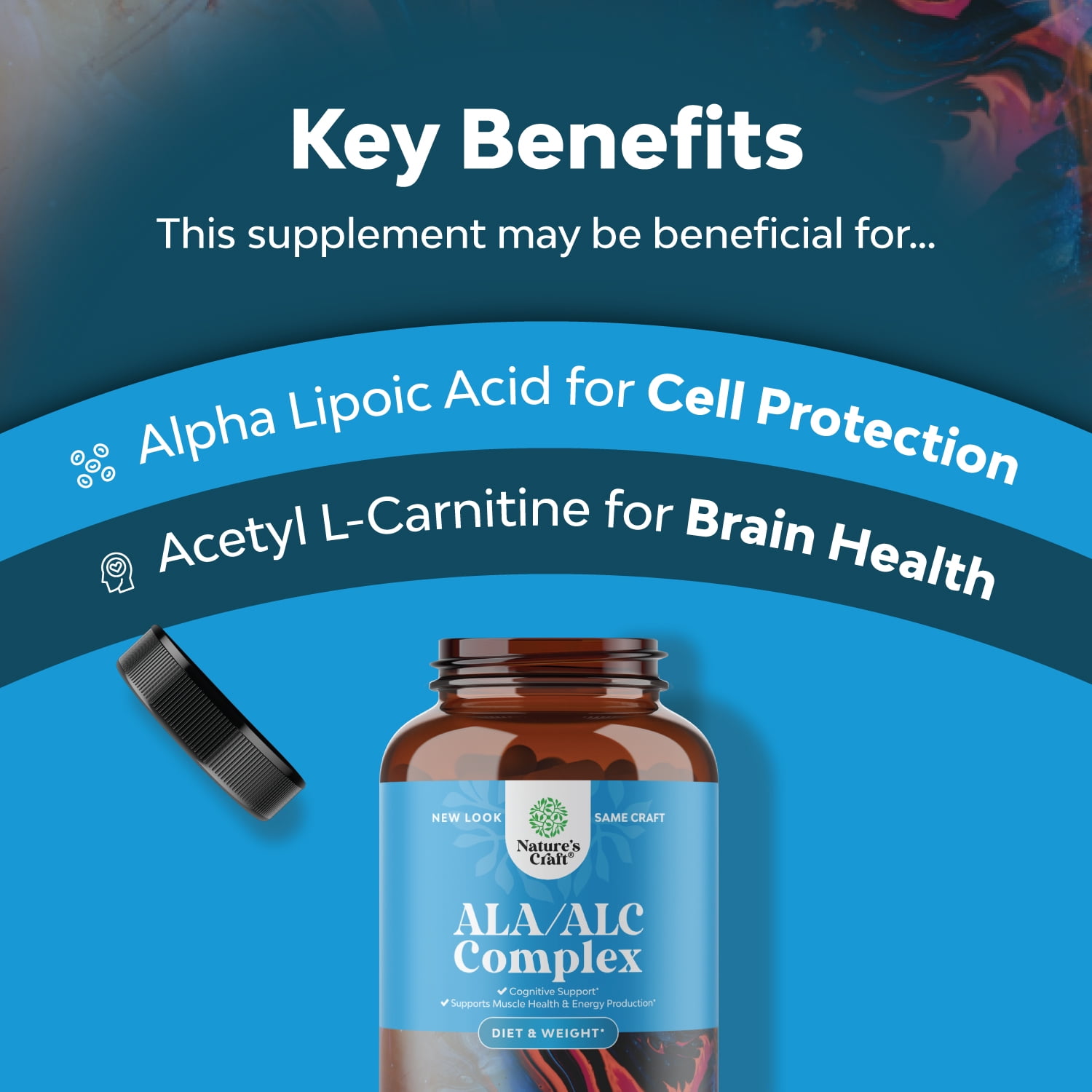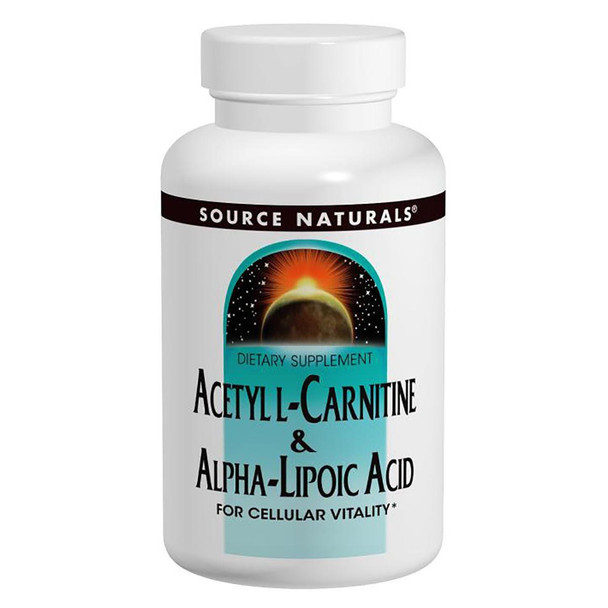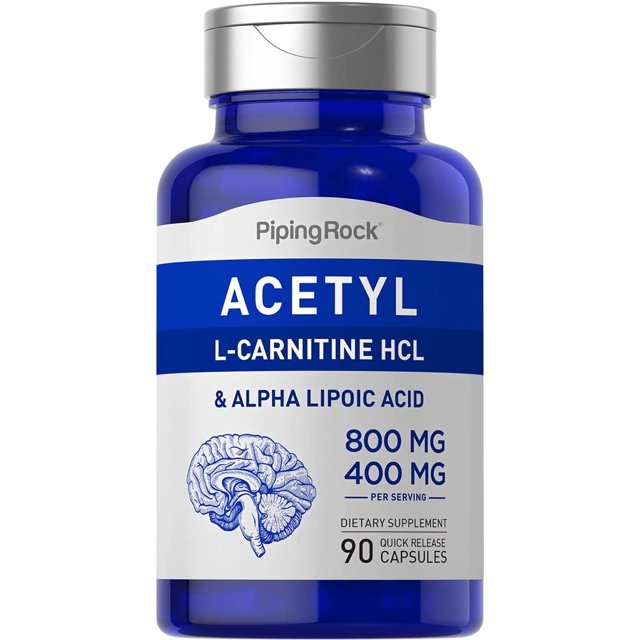Acetyl L Carnitine And Alpha Lipoic Acid Benefits
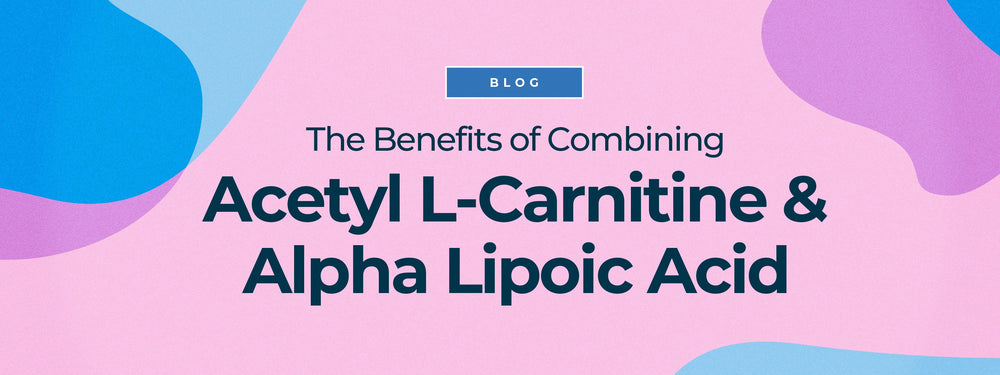
In an era increasingly focused on preventative health and longevity, the combined use of Acetyl L-Carnitine (ALCAR) and Alpha-Lipoic Acid (ALA) has garnered significant attention. These two naturally occurring compounds, both available as dietary supplements, are being studied for their potential synergistic effects on various aspects of health, from cognitive function to metabolic processes.
This article aims to explore the science-backed benefits of ALCAR and ALA, examining their individual roles and the potential advantages of combining them, while maintaining a balanced and evidence-based perspective.
Understanding Acetyl L-Carnitine (ALCAR)
ALCAR is a modified amino acid that plays a crucial role in energy production. It facilitates the transport of fatty acids into the mitochondria, the powerhouses of cells, where they are burned for fuel. This process is essential for maintaining cellular energy levels and overall metabolic health.
Beyond its role in energy production, ALCAR is also a potent antioxidant and is involved in neurotransmitter synthesis. Research suggests it may have neuroprotective effects, potentially benefiting cognitive function and neurological health, especially as people age. Examine.com, a website that aggregates scientific studies on supplements, reports extensive research on ALCAR's benefits.
Potential Benefits of ALCAR
Several studies suggest ALCAR may improve cognitive function, particularly in individuals with age-related cognitive decline or neurodegenerative diseases. A meta-analysis published in the journal "Nutrients" explored several studies and concluded that ALCAR supplementation was associated with improvements in memory and attention.
Furthermore, ALCAR has been investigated for its potential to alleviate symptoms of depression and improve mood. It can help to enhance nerve function and reduce nerve pain (neuropathy), particularly in individuals with diabetes. This makes it a potential adjunct therapy for managing diabetic neuropathy.
Delving into Alpha-Lipoic Acid (ALA)
ALA is a naturally occurring antioxidant that is both water-soluble and fat-soluble. This unique characteristic allows it to work throughout the body, neutralizing free radicals in both cellular membranes and aqueous environments.
ALA plays a vital role in energy metabolism. It acts as a cofactor for several mitochondrial enzymes involved in glucose metabolism, contributing to the production of ATP, the body's primary energy currency.
Potential Benefits of ALA
ALA's antioxidant properties make it a potential therapeutic agent for various conditions characterized by oxidative stress. Research indicates that ALA may improve insulin sensitivity and help regulate blood sugar levels, making it beneficial for individuals with diabetes or insulin resistance.
ALA has demonstrated neuroprotective properties in preclinical studies and trials. Some studies have shown potential benefits in conditions like diabetic neuropathy, reducing nerve pain, burning, and numbness.
"Alpha-lipoic acid is able to scavenge free radicals in the body, and it may have a number of potential health benefits,"notes the National Institutes of Health (NIH) in its information on ALA.
The Synergistic Potential: ALCAR and ALA Together
The combination of ALCAR and ALA has gained traction due to their complementary mechanisms of action. ALCAR aids in transporting fatty acids into the mitochondria for energy production, while ALA supports mitochondrial function and reduces oxidative stress.
Together, they may enhance mitochondrial biogenesis (the creation of new mitochondria) and improve overall mitochondrial function. This synergistic effect can potentially lead to improvements in energy levels, cognitive function, and overall health.
Studies suggest that this combination could have a more significant impact on neurological health. A study published in the "Journal of Alzheimer's Disease" found that the combination of ALCAR and ALA improved cognitive performance in individuals with mild cognitive impairment compared to either supplement alone.
Important Considerations and Cautions
While ALCAR and ALA are generally considered safe for most people, it's crucial to consult with a healthcare professional before starting supplementation, especially if you have underlying health conditions or are taking medications. Potential side effects are rare and are usually mild.
Dosage recommendations for ALCAR and ALA vary depending on the individual and the intended health benefit. It's vital to follow recommended dosages and monitor for any adverse effects. Pregnant or breastfeeding women should also consult their doctor before using these supplements.
It's also important to note that dietary supplements are not regulated by the FDA to the same extent as prescription medications. Therefore, it's crucial to purchase supplements from reputable brands that adhere to quality standards and undergo third-party testing.
Conclusion
Acetyl L-Carnitine and Alpha-Lipoic Acid hold promise as beneficial supplements for promoting energy production, cognitive function, and overall health. The potential synergistic effects of combining these two compounds are intriguing and warrant further research.
However, it's important to approach supplementation with a balanced perspective. Consumers should consult with healthcare professionals to determine if ALCAR and ALA are appropriate for their individual needs and to ensure safe and effective use.
As research continues to unravel the intricacies of these compounds, the possibility for improvements in health and wellbeing remains an active and hopeful field of study.
